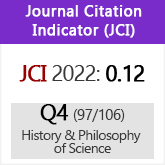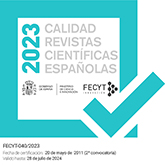The controversy regarding Tertiary Man and its expression in Valencia (Spain) during the early 20th century
DOI:
https://doi.org/10.3989/asclepio.2012.v64.i1.513Keywords:
Evolutionism, Paleoanthropology, Fossil man, Valencia, Spain, Eduardo Boscá, Faustino Barberá, Jesuits, 20th centuryAbstract
Postulates on the tertiary age of humanity by some late-19th century evolutionists gave rise to heated controversy among naturalists, biologists and physicians. In Spain, the diatribes between supporters and detractors must be located within the general context of the evolutionary subject in a country, that was deeply polarized by ideological impregnations. Spanish debate was specially motivated by the arrival in Valencia of a human skeleton fossil in 1889. This specimen, collected in Argentina, showed some peculiar traits that were classified as primitive and dating from the Tertiary time period. During the early decades of 20th century, a series of papers about that skeleton were published and the controversy was reactivated. On one side, we find Eduardo Boscá, natural history professor in the University of Valencia, as a partisan of Tertiary age; on the other, the physician Faustino Barberá and some Jesuit scientists. Scientific data and ideological and religious arguments were combined in the defence of each confronted view.
Downloads
Download data is not yet available.
Downloads
Published
2012-06-30
How to Cite
Catalá Gorgues, J. I. (2012). The controversy regarding Tertiary Man and its expression in Valencia (Spain) during the early 20th century. Asclepio, 64(1), 63–96. https://doi.org/10.3989/asclepio.2012.v64.i1.513
Issue
Section
Studies
License
Copyright (c) 2012 Consejo Superior de Investigaciones Científicas (CSIC)

This work is licensed under a Creative Commons Attribution 4.0 International License.
© CSIC. Manuscripts published in both the printed and online versions of this Journal are the property of Consejo Superior de Investigaciones Científicas, and quoting this source is a requirement for any partial or full reproduction.All contents of this electronic edition, except where otherwise noted, are distributed under a “Creative Commons Attribution 4.0 International” (CC BY 4.0) License. You may read here the basic information and the legal text of the license. The indication of the CC BY 4.0 License must be expressly stated in this way when necessary.
Self-archiving in repositories, personal webpages or similar, of any version other than the published by the Editor, is not allowed.















